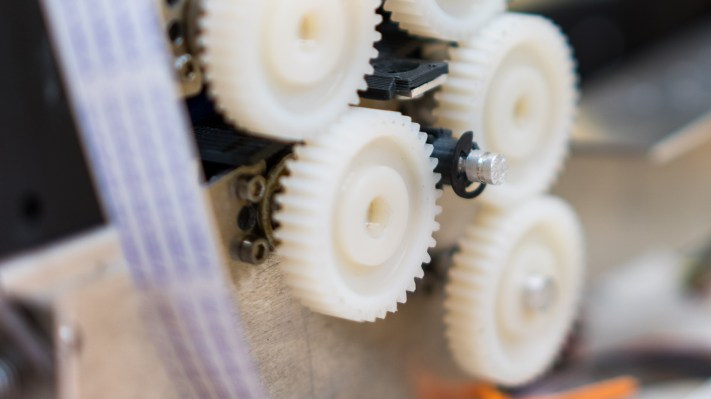If you’re an electrical engineer, DigiKey, Octopart and Mouser are permanently etched into your browser history — all the components you might need, at your fingertips. Volition just raised $11 million to become the same indispensable supplier for mechanical and industrial engineering: think motors, gears, pneumatics, hydraulics, controllers, sensors, measuring and test equipment, and a lot more. Checking out the company’s beta site, I found components I didn’t know existed, far less what they would be used for.
The company claims it has built out the world’s largest catalog of these components (16 million and counting) by partnering with some major industrial distributors.
“I grew up in a manufacturing family in the Rust Belt of Western Pennsylvania, and I was always building things and going to factories. After learning about both digital manufacturing and the tech startup world in college, I dedicated my career after graduation to using technology to make hardware development easier and revitalizing the industrial sector, which has had far too little love from the tech industry and American society in general in recent decades,” says Nick Pinkston, founder and CEO at Volition, who in past lives built Pittsburgh’s first maker space, HackPittsburgh. He also created CloudFab, one of the first marketplaces for 3D printing.
“My co-founders Natalie Klapper and Duffy Tilleman worked with me at my last company Plethora, so we got the band back together,” says Pinkston. “Natalie led our highly technical product teams from deep user research with our engineering users, to working with our PhD computational geometry devs to solve some of the hardest problems in manufacturing, while Duffy led the engineering side building a fully integrated 3D design feedback system and production system that ran the e-commerce side, factory production software, and other systems from the ground up.”
For the funding round, Newark Venture Partners and Quiet Capital were the two co-leads. Quiet has been around on the company’s cap table since its pre-seed round. The round will enable the company to ramp up its go-to-market, and expand the product offering.
“Our mission is to ‘Accelerate the Pace of Hardware Innovation’. By organizing the world’s components all in one place and building search modalities meant for this industry, we are not only helping the process of finding and buying be more efficient (i.e. speed ups), but we are also helping people select better parts by putting more options at their fingertips they otherwise wouldn’t have discovered,” says Pinkston. “However, creating the industry’s components marketplace is the first stage of becoming a hub for the entire industry more broadly. Once we achieve that, we’re able to build a lot of other tools to integrate our data and services into every stage of the product lifecycle from prototyping, testing, manufacturing, and beyond.”
As you might expect, it’s pretty hard to create a data system that aggregates tens of millions of products at a high enough quality to meet the strict requirements of hardware engineers — and Volition suggests that the reason the likes of Amazon, Alibaba and other marketplaces haven’t done this yet is that every supplier represents its data differently — and often quite poorly.
For example: Search for “coffee table between 34 and 36 inches long” on Amazon, and it returns… well, nothing helpful. If Amazon can’t do it for something as simple as a coffee table, you can imagine that hardware engineers, who have exacting needs about the parts they desire to build prototypes and products, are living in a tiny little infuriating bubble of frustration. If Volition can deliver on its vision, I can absolutely see it shaking up this industry.
